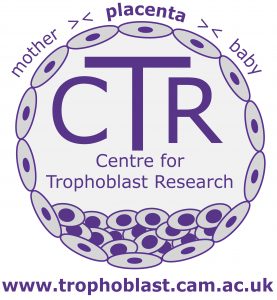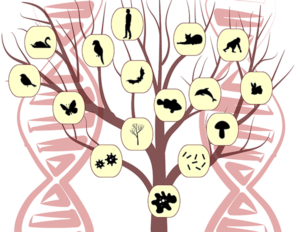Mechanisms and Evolution of Intergenerational Change
24–26 September 2019
Wellcome Genome Campus, UK
Exploring the developmental origins of health and disease
Summary
Recent observations strongly suggest that changes in maternal stress signalling can lead to altered development in offspring and changes in offspring physiology across evolutionary lineages. In mammals, studies suggest that maternal exposure to environmental stress during pregnancy can lead to an increased risk of a variety of pathologies in later life including diabetes, cardiovascular disease, depression and anxiety. This new conference will compare and contrast mechanisms of intergenerational change in diverse organisms, to help us understand how the maternal environment contributes to developmental programming and disease susceptibility.
The programme places particular emphasis on comparing mechanisms underlying maternal effects observed throughout ecology and evolution with the mechanisms underlying foetal programming in mammals. The overall aim is to explore whether the developmental origins of health and disease are caused by conserved molecular mechanisms and if they can be prevented or reversed.
The conference will bring together scientists working on foetal programming and developmental origins of health and disease in humans and animals (with a focus on the mechanisms underlying the developmental programming) with ecologists and evolutionary biologists interested in the effects of the parental environment on offspring physiology.
We welcome abstracts on all major themes of this meeting for oral or poster presentations.
Read the Wiley collection of related research:
Conference poster
Download the conference poster to share with your colleaguesProgramme
The conference will start at approx. 13.00 on 24 September and finish at approx. 14.00 on 26 September 2019.
Topics will include:
● Evolutionary modelling of intergenerational effects
● Evolutionary models of intergenerational change in plants
● Evolutionary models of intergenerational change in vertebrates and invertebrates
● Foetal programming models in mammals
● Foetal programming in humans and model organisms
Organisers and speakers
Scientific programme committee
Jennifer Brisson
University of Rochester, USA
Paula Brunton
University of Edinburgh, UK
Nick Burton
University of Cambridge, UK

Ben Dantzer
University of Michigan, USA
Keynote speakers
Pat Monaghan
University of Glasgow, UK
Kent Thornburg
Oregon Health and Science University, USA
Confirmed speakers
Tracy Bale – University of Maryland, USA
Ryan Baugh – Duke University, USA
Kathleen Donohue – Duke University, USA
Anne Ferguson-Smith – University of Cambridge, UK
Dino Giussani – University of Cambridge, UK
Bram Kuijper – University of Exeter, UK
Cris Ledón-Rettig – Indiana University, USA
Kirsty MacLeod – University of Lund, Sweden
Susan Ozanne – University of Cambridge,UK
Andrew Pospisilik – Max Planck Institute of Immunobiology and Epigenetics, Germany
Tessa Roseboom – University of Amsterdam, The Netherlands
Karen Spencer – University of St. Andrews, UK
Tobias Uller – University of Lund, Sweden
Jurriaan Ton – University of Sheffield, UK
Scientific Conferences Team
Zoey Willard – Conference & Events Organiser
Treasa Creavin – Scientific Programme Manager
How to apply
| Early bird discount (until 4 June) |
Standard rate (after 4 June) |
||
| Student | No accommodation | £267 | £367 |
| Student | On-site twin accommodation | £373 | £473 |
| Student | On-site single accommodation | £437 | £537 |
| Academic | No accommodation | £367 | £467 |
| Academic | On-site twin accommodation | £473 | £573 |
| Academic | On-site single accommodation | £537 | £637 |
| Commercial | No accommodation | £467 | £567 |
| Commercial | On-site twin accommodation | £573 | £673 |
| Commercial | On-site single accommodation | £637 | £737 |
The registration fee includes entrance to the lectures and poster sessions, an abstract book, meals (lunch and dinner) and refreshments during the conference. Breakfast will be provided for delegates who have booked accommodation.
Accommodation
Accommodation is provided for the nights of 24 and 25 September 2019. Please note: there is limited onsite accommodation and this will be allocated on a first-come, first-served basis. Therefore, early registration is recommended.
If you wish to book onsite accommodation either side of the conference dates, please contact the Conference Centre directly.
Travel visas
Contact the conference organiser if you require a letter to support a travel visa application. Please note: letters will only be provided to confirmed registrants.
Non-European Economic Area or Swiss nationals may be required to have a visa to enter the UK.
Early application is strongly advised, as this process can take 6-8 weeks or longer.
Please visit the following websites for further information:
Accommodation services phishing scam – please be vigilant. More information.
Cost
A limited number of registration bursaries are available for PhD students to attend this conference (up to 50% of the standard registration fee) from Wellcome Genome Campus Scientific Conferences.
To apply, please contact the conference organiser. You will be sent a unique registration link which will hold your place, without taking payment, until you have been notified of the outcome of your application.
The following documents will need to be provided as part of the bursary application:
- Abstract (to be submitted via the portal during the registration process)
- CV
- A justification letter (explain how you will benefit from attending the conference)
- A supporting letter from supervisor stating financial need
If you have already registered for the conference you are still welcome to apply for a bursary, please contact the conference organiser.
Bursary deadline: 18 June 2019
Additional funding opportunities
Visit our support page for additional financial support currently available.
Abstracts
We welcome abstracts from all areas relevant to the main themes of the meeting, for both oral and poster presentations. Several oral presentations will be chosen from the abstracts submitted.
Abstracts will only be considered from registered delegates. Please use our online abstract submission system and follow the instructions given to ensure your abstract is submitted correctly. All abstracts must be submitted by the deadline. If you are intending to submit more than one abstract, please contact the conference organiser prior to registration.
The scientific programme committee will assess your abstract after the deadline has passed and you will be notified whether you have been selected for an oral or poster presentation.
Poster boards onsite will accommodate 118 cm high by 84 cm wide (A0- portrait) of printed material. Accepted abstracts will appear in the conference programme book and poster boards will be allocated at the conference.
Abstract deadline: 2 July 2019
Sponsors
Our Mechanisms conference has been made possible thanks to our valued sponsors.
With thanks to the Journal of Neuroendocrinology for sponsoring a Best Short Talk award:

With thanks to the Centre for Trophoblast Research:

If you are interested in supporting this meeting, please contact the conference organiser.


